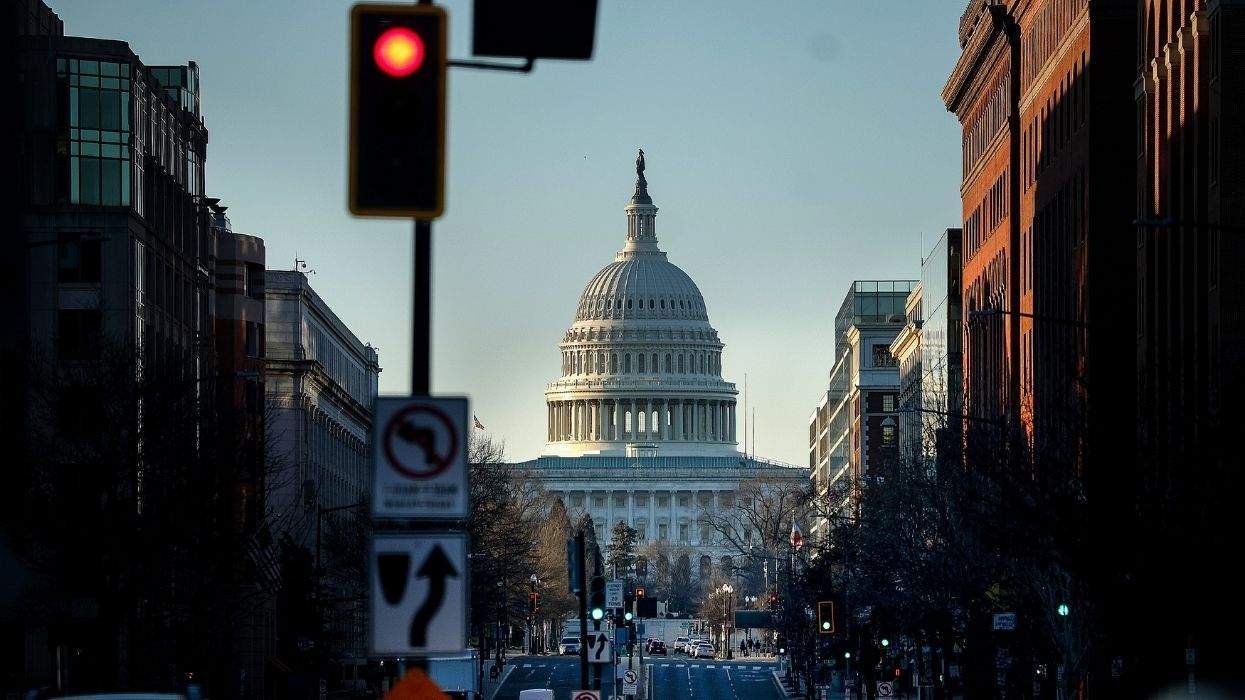Two gay
California men will ask a federal appeals court this week to
declare they have a right to marry under the U.S.
Constitution, but heavyweights in the fight for
same-sex marriage are sitting this one out because
they think the legal tactic is misguided. "We have been very
active in trying to win the freedom to marry for same-sex
couples," said Jon Davidson, legal director for the
Lambda Legal Defense and Education Fund. "We think
there is a smart way to do that and a less smart way
to do that."
Lambda, the American Civil Liberties
Union, and other groups are waging their campaigns in
the state courts of California, Iowa, Washington, New
Jersey, New York, and elsewhere, seeking rulings similar to
the one that led to legal same-sex marriage in
Massachusetts. The New Jersey Supreme Court heard
arguments in February in a gay-marriage case and is expected
to rule in the next several months.
The groups are withholding funding
and other support for this case because a U.S. Supreme
Court ruling at this juncture is a likely loser given
the national consensus against gay marriage, and it's likely
to set bad precedent, they say. The lawyer for a
California couple whose case will be heard Tuesday by
the 9th U.S. Circuit Court of Appeals scoffs at the
groups' tactics. "You fight for your rights when your rights
are being denied," Richard Gilbert said. "When the
building is on fire, you don't stand by and let the
building burn down and say we'll fight the fire
another day."
His clients, Arthur Smelt and
Christopher Hammer, are suing in federal court under
the theory that the U.S. Constitution's equal rights
guarantee forbids laws against same-sex marriage. The two
men, both in their 40s, declined comment.
The lawsuit is already one stop short
of the Supreme Court meaning the case could prompt a
definitive ruling by the justices as early as next
year on the constitutionality of laws in 49 states barring
same-sex marriage. The conventional wisdom among many
same-sex marriage advocates is that gays and lesbians
must win the right to marry in several states before
asking the Supreme Court to rule on whether the Constitution
prohibits laws opposing it. That approach is failing,
Gilbert said.
Despite recent polls showing
Americans are increasingly accepting of same-sex
marriage, the movement has seen a backlash in the two years
since Massachusetts started issuing marriage licenses and
San Francisco Mayor Gavin Newsom's short-lived and
illegal move to allow gays and lesbians to marry at
City Hall.
In 2004, 13 states approved
constitutional bans on same-sex marriage. Texas
followed suit the following year, and voters in six or more
states could be asked to amend their state
constitutions similarly this year.
Even Gilbert suspects his case might
lose at the Supreme Court or be dismissed on
procedural grounds without a definitive ruling. "Once
there is a great stain like that on the courts, there will
be a greater movement toward correcting the problem,"
he said.
Matthew Coles, director of the ACLU's
Lesbian and Gay Rights Project, said there is no
"magic number" of states that need to approve same-sex
marriage before the issue should go before the Supreme
Court. "We think, strategically, bringing a federal
claim for marriage now is not a wise idea," Coles
said. "The Supreme Court is the country's
institutional conscience, and if you lose there, I think
that sets you back."
Gilbert, however, likened his case to
the 1857 Dred Scott decision, when the Supreme Court
ruled that black men could be "treated as an ordinary
article of merchandise." The nation eventually overcame that
decision with the Civil War and banned slavery. The ACLU and
Lambda, Gilbert said, "would have told Dred Scott,
'Don't bring your case.'"
Lambda's Davidson said history is
siding with his position. In 1986, when many states
had laws banning sodomy, the Supreme Court upheld a Georgia
sodomy law. Then, in 2003, in what was then seen as the most
important legal advance for gays, the justices struck
down a Texas sodomy law in a decision that nullified
the nation's remaining 13 state sodomy laws.
"What we've learned was: You're more
likely to win at the Supreme Court if you've done your
homework, if you have victories in state courts,"
Davidson said. "[Gilbert] thinks he knows better and
that we have somehow sold out, and I find that quite
offensive." (AP)
Federal court
hears case for same-sex marriage
hears case for same-sex marriage
Two gay California men will ask a federal court this week to declare they have a right to marry, but gay rights leaders aren't happy about it
















